🌍 Stop saving the world
If the world needs saving, it means that it is falling apart. On the contrary, the world is getting better.
Share this story!
Save the world. Save the planet. This is frequently used, both by pessimists and optimists.
What If We Stopped Pretending?, writes author Jonathan Franzen in The New Yorker:
"Hardly a day seems to pass without my reading that it’s time to 'roll up our sleeves' and 'save the planet'; that the problem of climate change can be 'solved' if we summon the collective will."
He doesn't believe it's possible to save the world.
More positive is Swedish House Mafia, who with their song "Save the world," suggests that we can save the world if we work together.
Who gonna save the world tonight?
Who gonna bring it back to life?
We’re gonna make it, you and I
We’re gonna save the world tonight
– 'Save the World', Swedish House Mafia
Even more positive is Marc Andreessen in Why AI Will Save The World.
The era of Artificial Intelligence is here, and boy are people freaking out. Fortunately, I am here to bring the good news: AI will not destroy the world, and in fact may save it.
The world doesn't need saving
Franzen's text is tragically comic in its pessimism, but I appreciate the message from Swedish House Mafia and Andreessen. Despite their positive tone, the often-used concept of 'saving the world' is negative.
If the world needs saving, it means it's breaking and going under. That the world is getting worse, and we need to work together and use AI to save it.
On the contrary, the world is improving.
When we crowdfunded and gifted Steven Pinker's book Enlightenment Now to a hundred Members of Parliament, we wrote in the accompanying letter:
“What constitutes progress differs from person to person, but most would agree that life is better than death. Health is better than illness. Wealth is better than poverty. Peace is better than war. Safety is better than danger. Freedom is better than tyranny. Equal rights are better than discrimination. Knowledge is better than ignorance. Happiness is better than despair. The opportunity to be with family, friends, and to enjoy culture and nature is better than loneliness and boredom. Given all these factors, the world has become much better.”
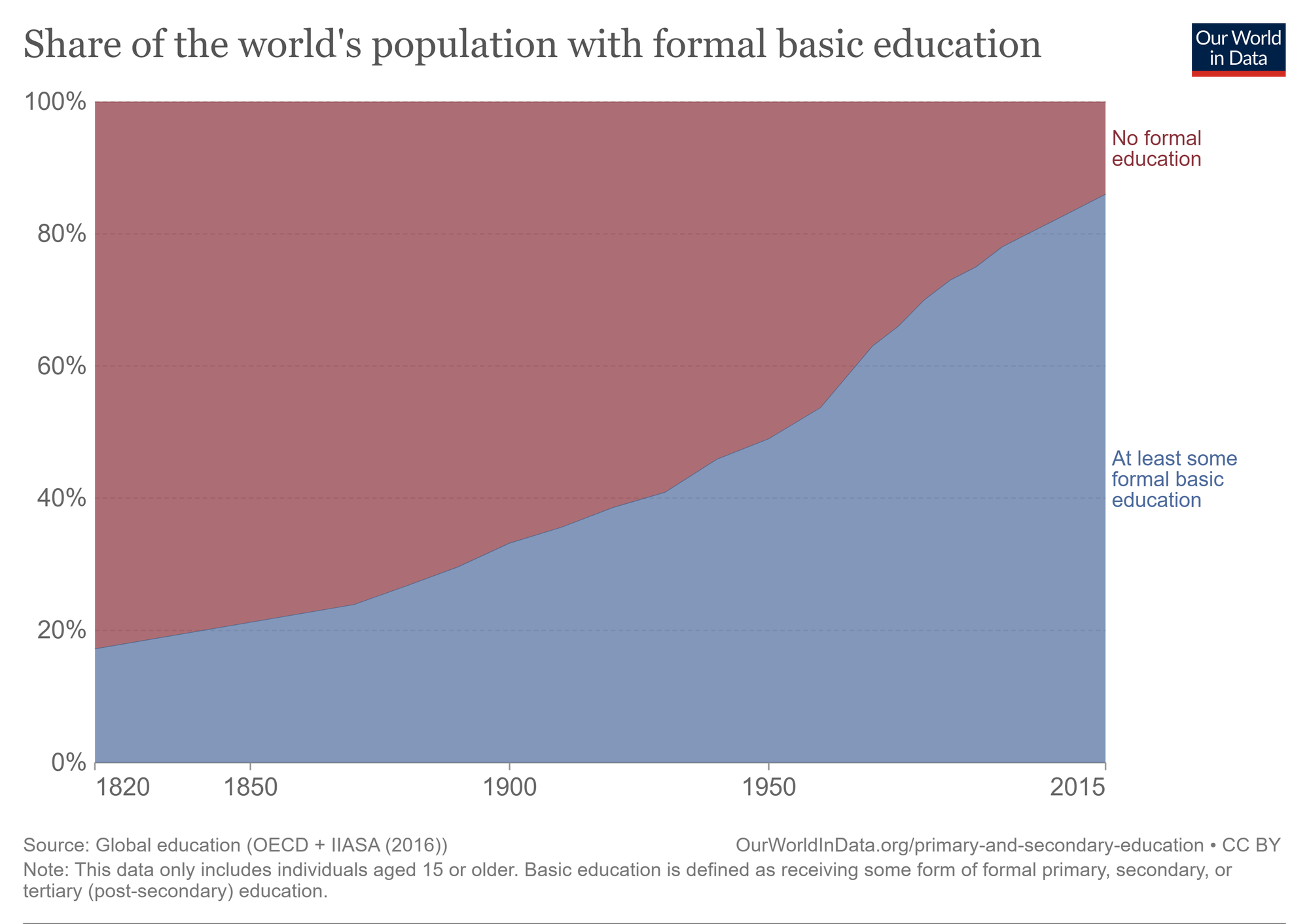
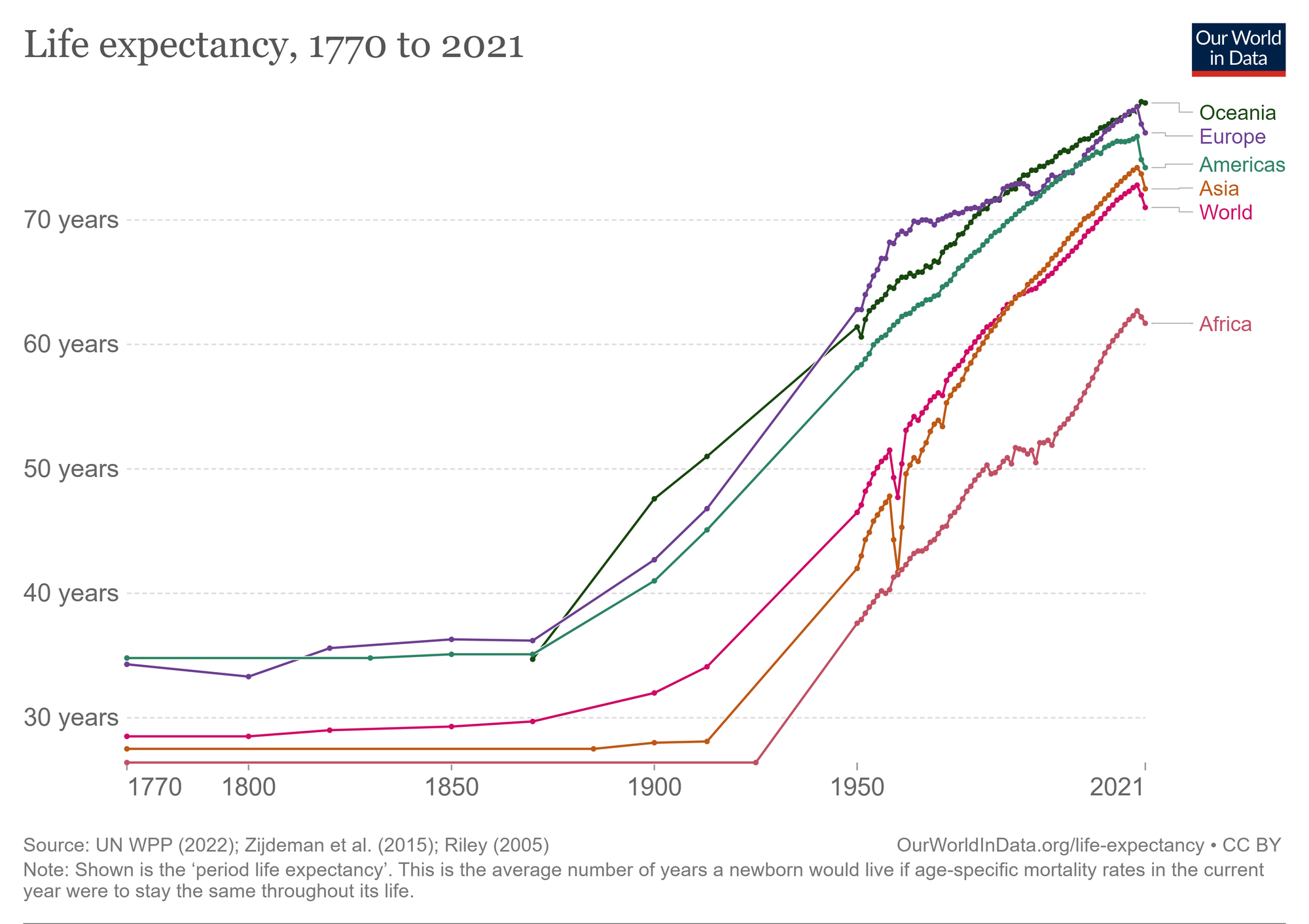
This doesn't mean everything always improves. Nor that the remaining problems aren't serious. Some problems are even growing. But life-changing, very important things, are improving and the trend is long-standing and strong.
Climate change is one of the problems that's growing, but we've started addressing it. The only way it would destroy the world is if it continued unabated, and we fueled it more and more for several decades. The fact is, we've already started to bend the curve. As climate researcher Zeke Hausfather recently demonstrated: Global climate emissions aren't following the worst-case scenario.
If you step back in time to 2014, global CO2 emission told a pretty frightening story. ... Global emissions appeared to be following the worst-case (RCP8.5) scenario.
But over the last decade things have started to change.
CO2 emissions have been relatively flat during the 13 years after 2010, and are now closer to the middle-of-the-road RCP4.5 scenario than the high-end RCP8.5 one.
As Swedish House Mafia sings, we need to work together to solve remaining problems, but that's not the same as saying we need to save the world.
People are already wrong about the world's progress
When even optimists use the phrase 'save the world', it reinforces the narrative that the world is worsening and things are about to go completely downhill.
And that's actually what most people believe. Hans Rosling showed us that. In Rosling's Ignorance Test, most had no clue about the world's development.
Or to be more accurate, it was worse than that. People weren't just uninformed and guessing wrong. They thought they knew and consistently chose the most pessimistic answers because that's how they see the world.
Therefore, a chimpanzee would perform better than most people since it has no biases and just guesses.
Understanding our successes
If we don't believe that what we're doing has a positive impact, it's easy to give up, or think that we need to do something entirely different.
Instead, we should do more of what works. That's why it's essential not to exaggerate problems, describe them correctly, and highlight and understand our successes.
So please, stop saving the planet.
Mathias Sundin
The Angry Optimist
By becoming a premium supporter, you help in the creation and sharing of fact-based optimistic news all over the world.


